MacBook Pro 2019 vs MacBook Pro 2018 – is it worth an upgrade?
Battle of the 15-inchers
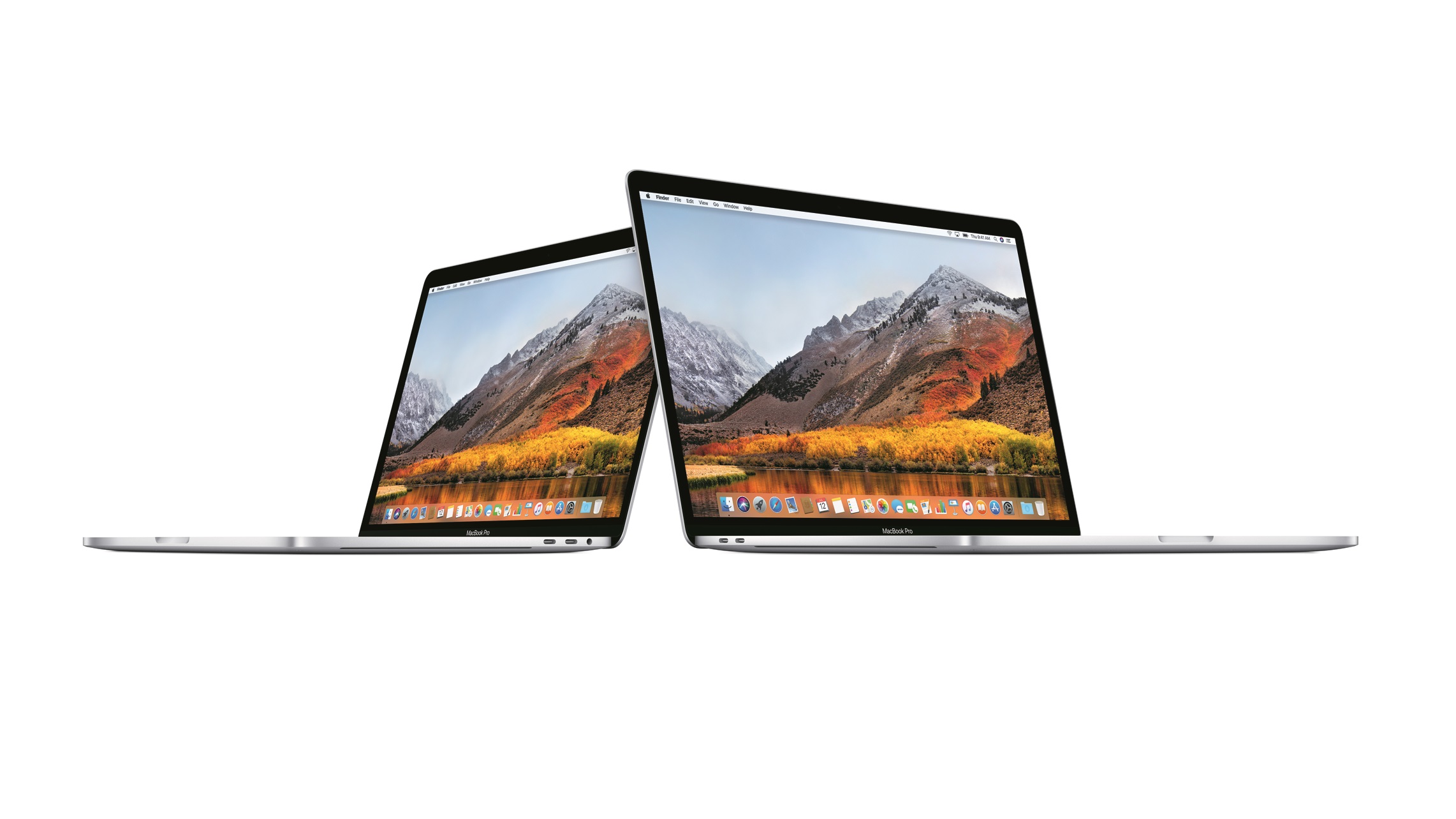
Let’s get this out of the way – for most people reading this MacBook Pro 2019 vs MacBook Pro 2018 comparison, it’s not a question of whether the MacBook Pro 2019 is worth upgrading to from the MacBook Pro 2018.
You’d have to be incredibly rich to consider upgrading a laptop – especially one as powerful and expensive as the MacBook Pro – every year. While it’s tempting to always have the latest tech and cutting edge components, it’s just not economically viable. And while hardware – especially laptop components – are constantly improving, most of the time you’re not going to see such a radical leap in performance that it makes your current year-old MacBook feel obsolete – though there have been exceptions.
However, this comparison of the MacBook Pro 2019 vs MacBook Pro 2018 is going to be useful for anyone who has an older MacBook Pro and is considering an upgrade. Ditto for anyone who’s never owned a MacBook Pro before.
Should you go for the latest and greatest MacBook Pro, or would buying the slightly older model be a wiser decision? Let’s take a look…
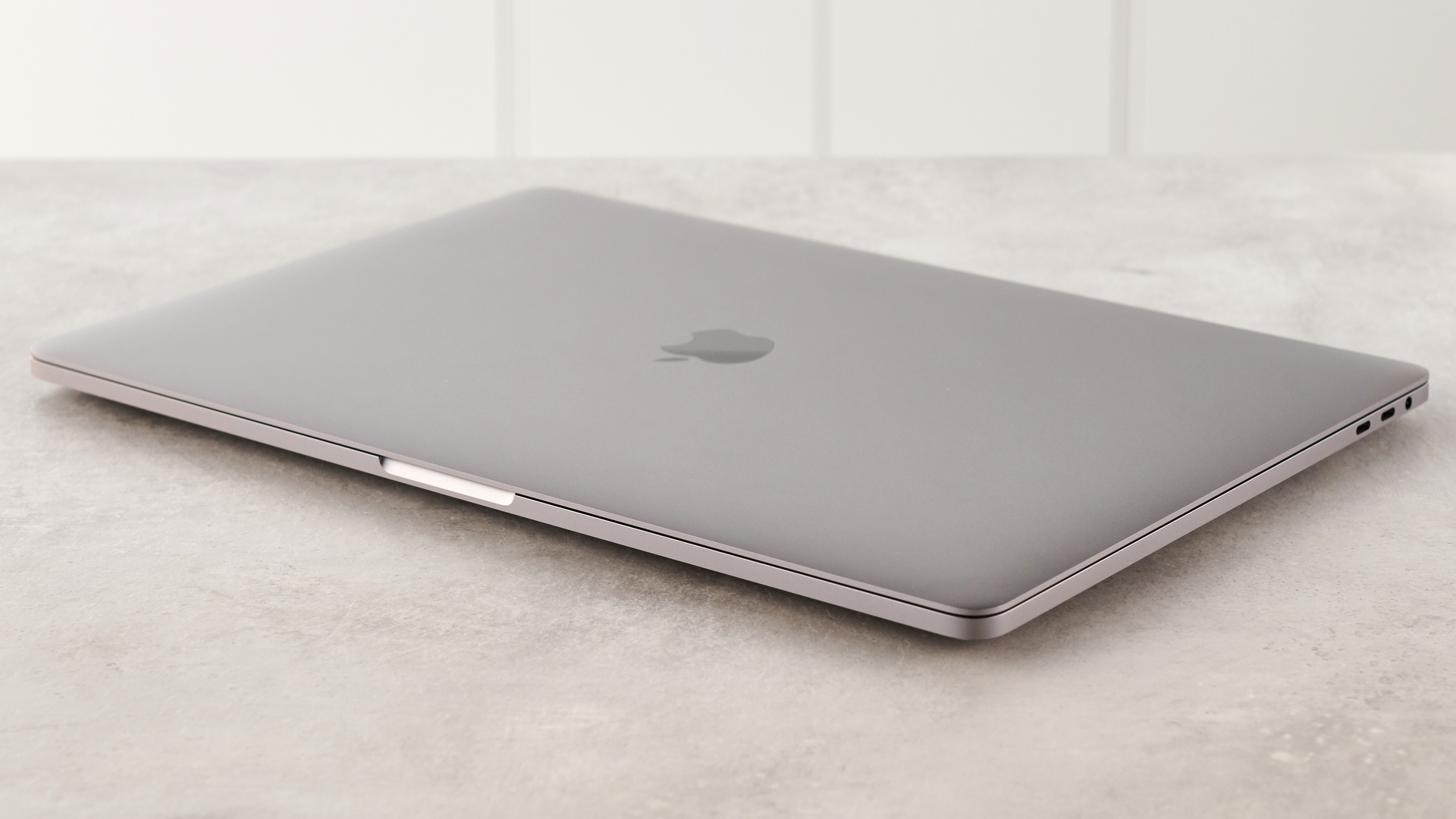
Design
We’ll cut to the chase with this: the MacBook Pro 2019’s design is identical to the MacBook Pro 2018’s. That means they are the same dimensions – 13.7 x 9.48 x 0.61-inches (34.92 x 24.07 x 1.55) – and the same weight – 4.02 pounds (1.83kg).
They also both come in the choice for two colors: Space Gray and Silver, which means on the outside, you won’t be able to tell the difference between the MacBook Pro 2019 and MacBook Pro 2018.
So, this means you’re not missing out on any fancy new designs or features if you go for the 2018 model instead of this year’s. It also means if you loved the design of previous MacBook Pros, you can buy the 2019 model safe in the knowledge that you know what you’re getting.
Get daily insight, inspiration and deals in your inbox
Sign up for breaking news, reviews, opinion, top tech deals, and more.
However, for anyone hoping for a more revolutionary redesign, you’ll be disappointed. Similarly, if previous post-2016 MacBook designs left you cold, the 2019 model does nothing to rectify that.
So, you get the Touch Bar, an OLED strip with interactive buttons, above the keyboard, which has been included since 2016, as well as a Touch ID sensor for logging in with your fingerprint.
Both the MacBook Pro 2019 and MacBook Pro 2018 have a 15.4-inch screen with 2,880 x 1,800 resolution, along with the True Tone feature for more vibrant colors.
Because of the identical designs, if you were disappointed by the MacBook Pro 2018’s paucity of ports – with just four Thunderbolt 3 ports – then you’ll again be disappointed by the 2019 model’s exact same port count. For regular users, the lack of ports won’t be too much of a bother, but for professionals who need to plug in legacy equipment, it means you need to invest in an adapter.
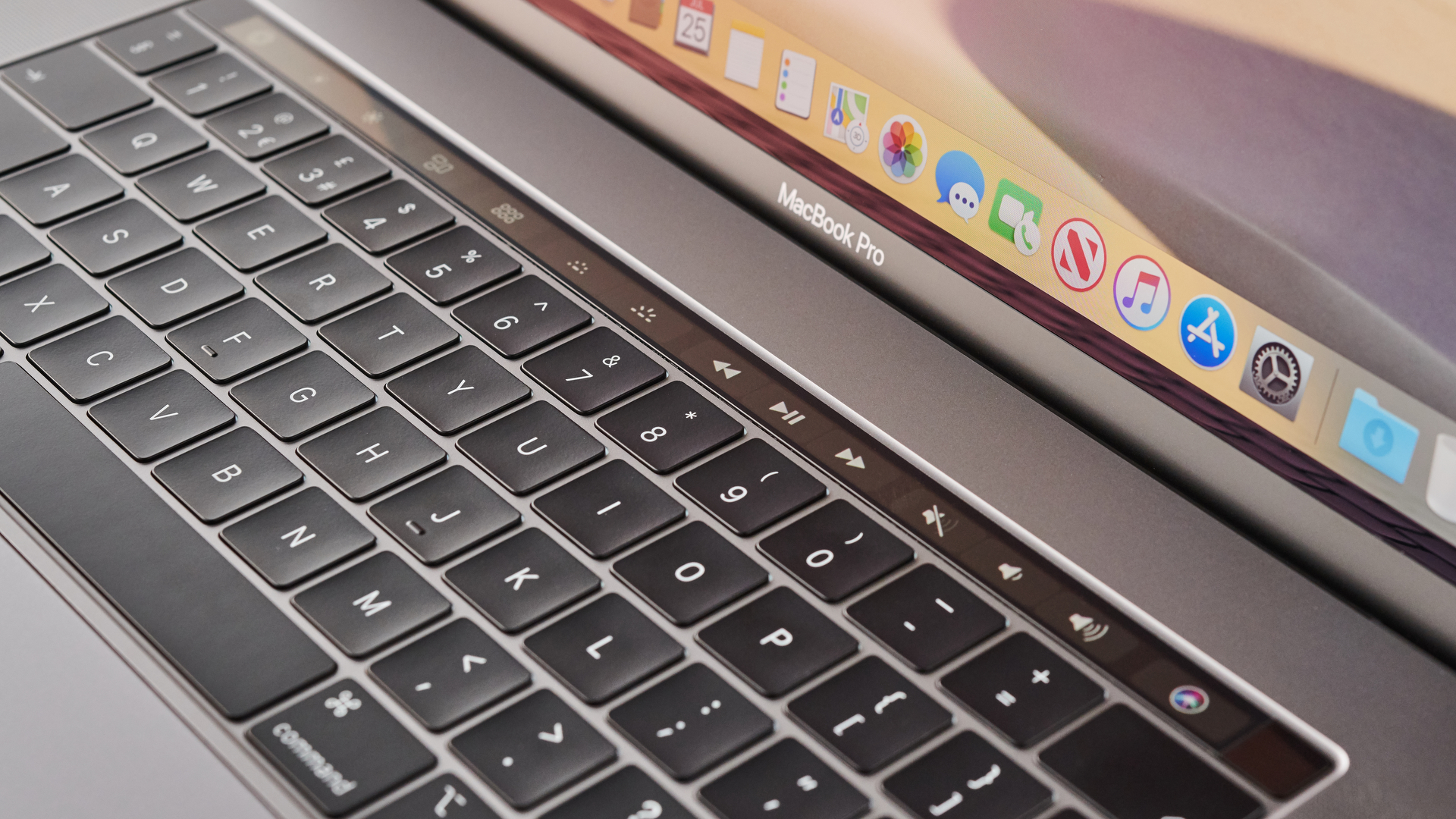
Keyboard
The MacBook Pro 2018 addressed some long-standing criticism that Apple was facing about the keyboards included in previous models. Essentially, there have been complaints that the keyboards of MacBook Pros made after 2016 can malfunction. Blame lay with the ‘butterfly’ switches Apple uses in these keyboards.
The 2018 model kept the butterfly switches, but added a silicone membrane that was supposed to stop those issues occurring. Unfortunately, there were still reported issues, leading many to hope that Apple would ditch the butterfly switches for the MacBook Pro 2019.
That hasn’t been the case, with the Mac Book Pro 2019 15-inch’s keyboard still using the problematic switches. However, Apple says it has further tweaked the keyboard, and while the company hasn’t divulged too much information about its tweaks, we do know that it has changed the materials used with the mechanism to reduce the likelihood of the keys getting stuck or not responding.
While that is a welcome – though disappointingly minor – tweak, Apple has also included the new MacBook Pro (2019) models in its Keyboard Service Program, which will replace a faulty keyboard free of charge. This suggests that Apple hasn’t completely fixed the issue.
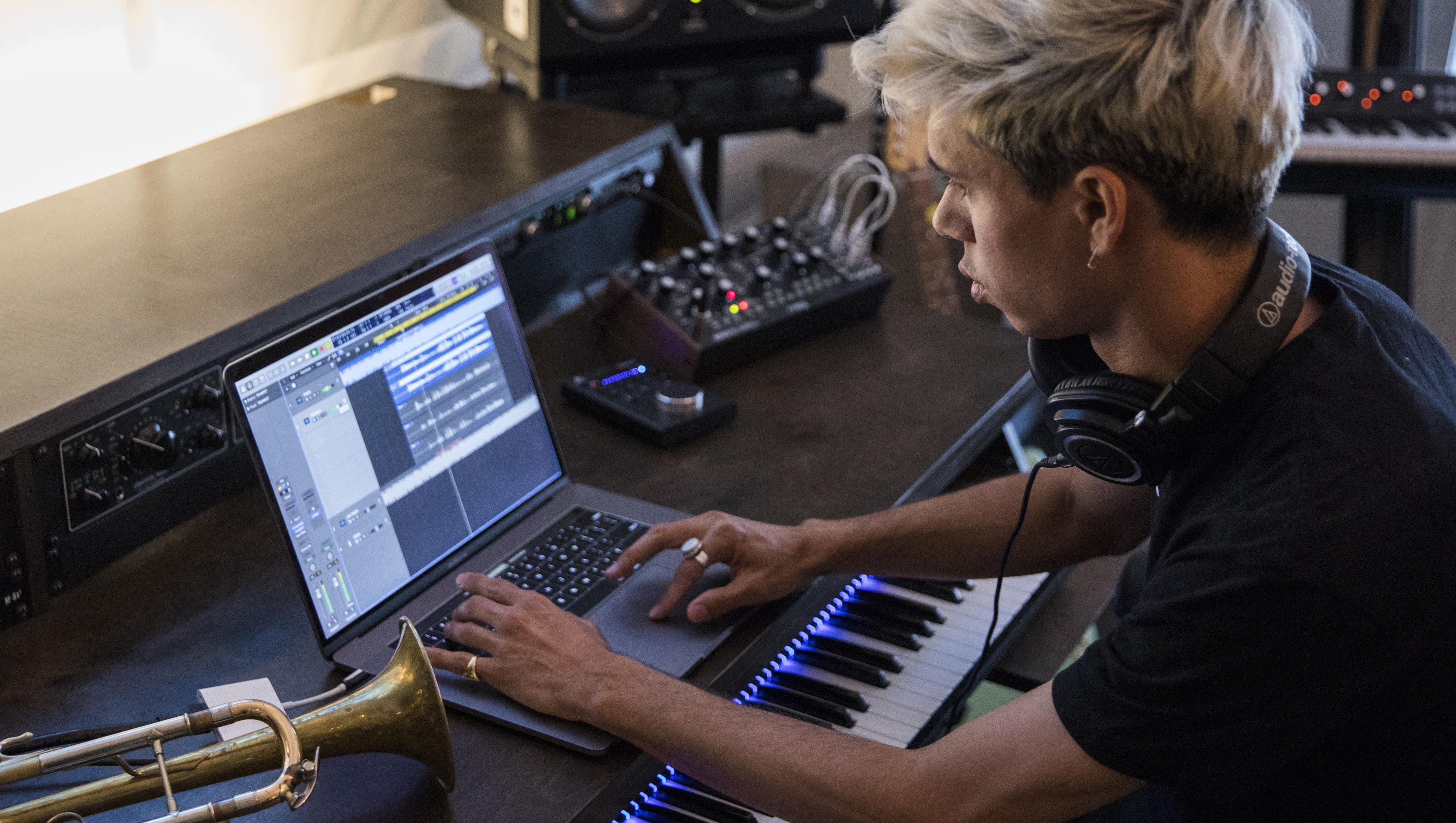
Hardware
While the outsides of the 15-inch MacBook Pro 2019 and the MacBook Pro 2018 are identical, the hardware inside them has changed.
The base model of the MacBook Pro 15-inch (2019) comes with a 2.6GHz 6-core 9th generation Intel Core i7 processor, Radeon Pro 555X with 4GB of GDDR5 memory, 16GB 2400MHz DDR4 RAM and 256GB SSD.
There’s also a model with a 2.3GHz 8-core 9th generation Intel Core i9 processor, Radeon Pro 560X with 4GB of GDDR5 memory, 16GB DDR4 memory and 512GB SSD storage. This is the first time an octa-core processor has been included in a MacBook Pro, and gives the higher-end MacBook Pro 2019 some serious chops when it comes to multi-tasking.
Meanwhile, the base model of the MacBook Pro 15-inch (2018) comes with a 2.6GHz 6-core 8th-generation Intel Core i7 processor, Radeon Pro 555X GPU, 16GB of DDR4 memory and a 256GB SSD.
The leap to 9th generation and boosted Radeon Pro graphics gives the 2019 base model a good bump in performance – but the 2018 model’s specifications are in no way underpowered. It remains a formidable laptop.
As with the 2018 model, you can configure the 2019 MacBook Pro with more powerful components, including an 8th generation Intel Core i9 processor with 8 cores and a 2.4GHz clock speed (5.0Ghz boost), 32GB RAM and AMD Radeon Pro Vega 20 with 4GB of HBM2 memory. This makes it by far the most powerful MacBook ever made.
If you’re simply after power, then there’s no contest: the high-end MacBook Pro 15-inch (2019) is the way to go. However, the 2018 model has enough power that it doesn’t feel outdated.
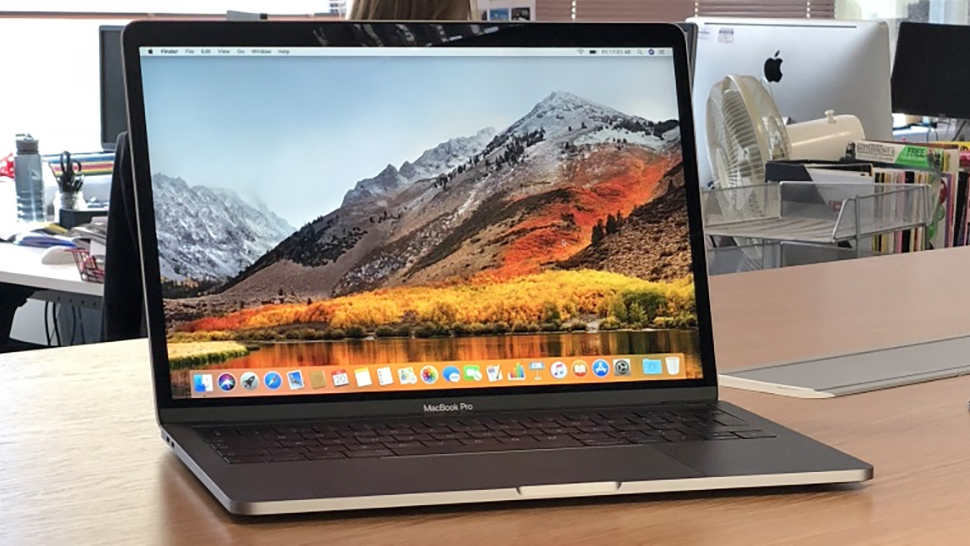
Price
The good news is that for the US and Australia, the base model of the MacBook Pro 15-inch (2019) is the same as the 2018 model ($2,399/AU$3,499). That means you’re getting an improved processor and graphics card for no extra money than what you’d have paid last year.
Meanwhile, the high-end model sells for $2,799 (£2,799, AU$4,099). That’s certainly a big chunk of change Apple is asking for.
While the base model’s price remains the same in the US and Australia, in the UK it’s more expensive - £2,399 compared with the MacBook Pro 15-inch (2018)’s £2,349. Effectively, it means you’re paying £50 more for the improved hardware.
If that seems a little unfair on the Brits, it’s because Apple has brought UK prices into line with US dollars, so for Apple, £1 = $1.
With the base model of the MacBook Pro 15-inch (2019) staying the same, we imagine that the 2018 model will see a bit of a price drop. Considering that the 2018 model is still a very good laptop in its own right, it means you could get a fantastic deal on the 2018 model – making it a better value proposition.
MacBook Pro 2019 vs MacBook Pro 2018: which one should I buy?
In many ways the MacBook Pro 2019 and MacBook Pro 2018 are quite evenly matched. When it comes to design, you can pick either one without worrying that you’re missing out on any new features or design.
The improved keyboard of the MacBook Pro 2019 means that if you’re concerned about spending vast sums of money on a laptop only to have a faulty keyboard, then that’s the model that could give you greater peace of mind.
However, it’s worth noting that it’s still using the butterfly switches. If you want a whole new keyboard, you may have to wait for the rumored 16-inch MacBook Pro that could be coming later in 2019.
Also, if getting the most powerful MacBook Pro is essential, then the MacBook Pro 15-inch (2019) is hands-down the one to get.
However, if you’re looking for better value for money, you should see the 2018 model come down in price. The fact that the MacBook Pro 2018 is still a relatively recent laptop means even in 2019, you’re getting a powerful laptop with future-proof specifications. With a decent price cut, this could be the deciding feature when you’re comparing the MacBook Pro 2019 vs MacBook Pro 2018.
- These are the best Macs of 2019

Matt is TechRadar's Managing Editor for Core Tech, looking after computing and mobile technology. Having written for a number of publications such as PC Plus, PC Format, T3 and Linux Format, there's no aspect of technology that Matt isn't passionate about, especially computing and PC gaming. He’s personally reviewed and used most of the laptops in our best laptops guide - and since joining TechRadar in 2014, he's reviewed over 250 laptops and computing accessories personally.